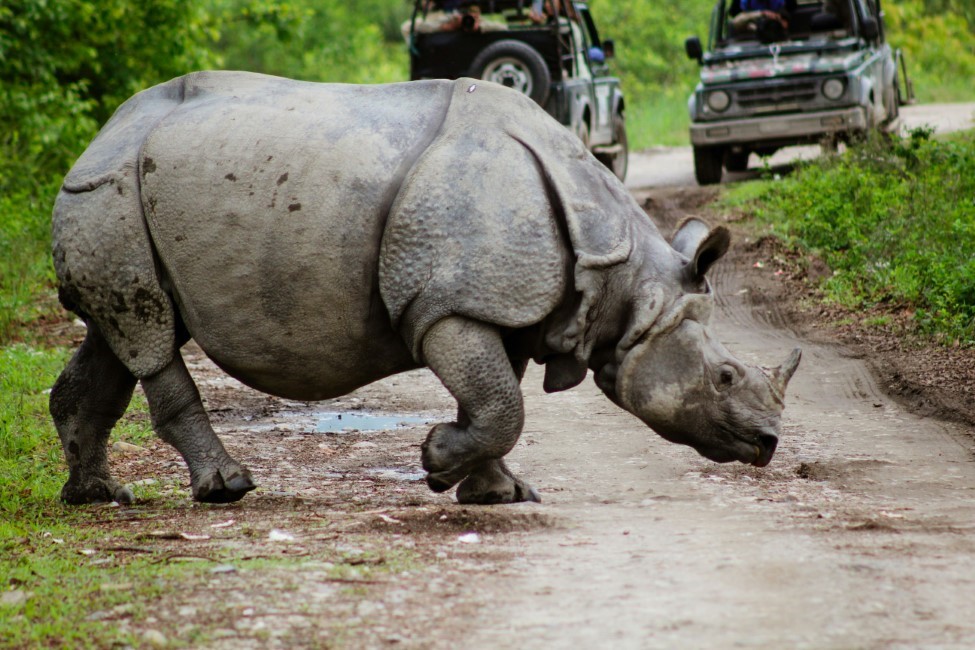Assam and Meghalaya are rich in culture, nature, and tradition — a perfect destination for travelers seeking both adventure and authenticity. To enjoy your visit while showing respect to local customs and keeping yourself safe and comfortable, here are the most important do’s and don’ts to follow while traveling through these Northeastern gems.
1. Respect Tribal Customs and Local Culture
Why read this: Meghalaya is home to matrilineal societies and Assam hosts diverse tribal communities with unique traditions.
Do: Greet locals respectfully, ask before taking photos, and learn basic cultural norms — especially in villages.
Don’t: Enter sacred forests or cultural spaces without permission, or assume your customs apply everywhere.
Final tip: Understanding local etiquette opens doors to warm hospitality and genuine cultural experiences.
2. Dress Modestly in Rural and Sacred Areas
Why read this: Temples, tribal settlements, and traditional events call for culturally respectful attire.
Do: Wear full-length clothes when visiting temples, monasteries, and villages. Carry a scarf or shawl for coverage.
Don’t: Wear revealing outfits, short shorts, or sleeveless tops in rural or spiritual areas.
Final tip: Comfortable, covered clothing also helps protect against insects and sun during treks.
3. Support Local and Sustainable Tourism
Why read this: Tourism can empower communities if done responsibly — both states offer eco-tourism and local homestays.
Do: Stay in community-run lodges or local homestays, and buy directly from artisans and village markets.
Don’t: Buy items made from animal parts or bargain aggressively with locals selling handmade goods.
Final tip: Look for locally certified eco-tours or hire guides from the community for authentic insight.
4. Be Environmentally Conscious
Why read this: Assam and Meghalaya are ecologically sensitive with pristine rivers, forests, and wildlife habitats.
Do: Carry reusable water bottles, avoid plastic, and leave no trash behind on trails or in nature spots.
Don’t: Litter, damage living root bridges, or bathe in sacred streams.
Final tip: Use eco-friendly toiletries and soaps when staying near rivers or rural areas.
5. Handle Food and Water Safely
Why read this: Local cuisine is a highlight, but it can be unfamiliar and sometimes spicy or fermented.
Do: Try local dishes like Jadoh, Smoked Pork, and Assamese Pitha — but start with small portions and eat at clean stalls.
Don’t: Drink tap water or eat raw food from street vendors without checking cleanliness.
Final tip: Always carry your own filtered bottle or buy sealed bottled water when in doubt.
6. Plan Transport and Routes Ahead
Why read this: Public transport is limited in remote areas and weather can affect accessibility.
Do: Book shared taxis or private cabs in advance, especially for routes like Shillong to Dawki or Kaziranga to Majuli.
Don’t: Depend on internet-based maps or assume taxis will be available late in the day.
Final tip: Download offline maps and keep cash ready — card machines are rare outside cities.
7. Stay Alert During Monsoon Travel
Why read this: Meghalaya receives some of the world’s heaviest rainfall and Assam’s lowlands can flood.
Do: Check weather forecasts, dress in waterproof layers, and travel only on recommended routes.
Don’t: Venture into high-water rivers or waterfalls during heavy rains — currents can be dangerously strong.
Final tip: Travel between October and April for better road conditions and clearer views.
8. Respect Religious Sites and Ceremonies
Why read this: Both states are spiritually diverse with Hindu temples, monasteries, and indigenous sacred sites.
Do: Remove shoes, speak softly, and follow ritual customs when attending aarti, church services, or tribal ceremonies.
Don’t: Touch idols, chant loudly, or enter restricted areas in religious spaces.
Final tip: Watch and learn from locals if you're unsure how to participate respectfully.
9. Interact Mindfully with Locals
Why read this: While most locals are warm and welcoming, conservative social norms still exist, especially in rural areas.
Do: Ask permission before entering homes, and speak politely — many locals understand Hindi or English.
Don’t: Assume Western behavior is acceptable everywhere — loud behavior or over-familiarity may cause discomfort.
Final tip: Compliment local crafts or food to build positive rapport with hosts or shopkeepers.
10. Be Prepared for Limited Connectivity
Why read this: Many scenic areas have poor internet and mobile coverage — which can impact navigation or bookings.
Do: Inform loved ones in advance, take printouts of reservations, and carry emergency contacts.
Don’t: Rely solely on Google Maps or online payments in rural regions.
Final tip: Airtel and Jio offer the best coverage — consider carrying a backup SIM or offline itinerary.
Feature Image:- Photo by Omkar Rane on Unsplash

